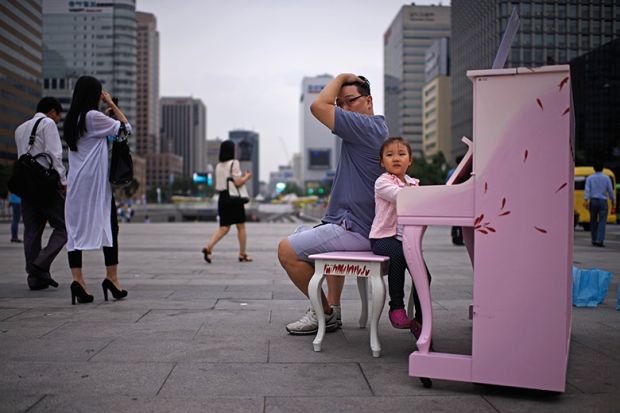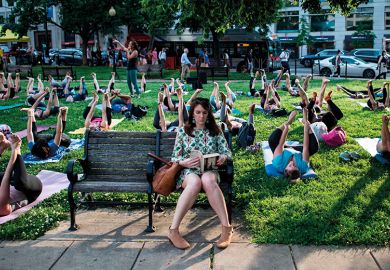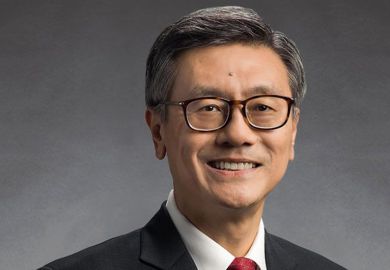Developed nations underfunding their universities should take note of a South Korean plan to move some school budgets to higher education amid demographic, educational and economic shifts, according to a former senior education figure at the Organisation for Economic Cooperation and Development.
Under proposals from the conservative administration led by Yoon Suk-yeol, who took office as South Korean president in May, the government would allocate an extra W11.2 trillion (£7 billion) for higher and lifelong education, including by redirecting W3.2 trillion from the budget for early-childhood, primary and secondary education.
According to reports, the Ministry of Education said the school-age population was in decline, creating an imbalance in the distribution of funding across school and higher education: Korea spends $11,290 (£9,279) per student in tertiary education, $5,775 below the OECD average. The extra funding would go into renovating buildings and developing new curricula, in particular boosting universities beyond Seoul. The plan would have to be approved by the National Assembly to come into force.
Dirk Van Damme, who retired from the OECD in 2021 after serving as senior counsellor in its education and skills directorate and is a former professor of educational sciences at Ghent University, said that as higher education participation increases across developed nations and the importance of lifelong learning grows, “the concentration of public funding in the first 25 years of the life course has actually no real good argument” behind it.
“The idea you should move gradually to a more equitable distribution of public funding in learning over the life course is, I think, a very interesting idea,” Professor Van Damme said of the South Korean proposals.
The figures gathered by the OECD annually in its Education at a Glance reports show that “many countries suffer from a lack of balance” in their public funding for education, he continued, highlighting nations such as Germany, the Netherlands, the UK and Belgium.
A “cost explosion” in per-pupil funding at secondary level in particular “has absorbed a lot of the public funding…in many countries it has been at the expense of higher education”, he added.
South Korea’s tertiary enrolment rate is the highest in the developed world, with 69 per cent of 25- to 34-year-olds having gained a tertiary qualification, against a steadily rising OECD average of 47 per cent.
Professor Van Damme said bodies such as the World Bank have long advocated a view that nations should not “spend too much on higher education because that is for the elite; it’s about very few people, you should invest in basic education”.
But that argument against “has a little bit lost in power over the past years, because access [to higher education] has improved”, he added.
Higher education “is no longer about educating an elite; it is about educating the future workforce”, he argued.
Yet still too much is being left “to the individual” on public funding for higher and lifelong education, Professor Van Damme said. “With the current evolution of educational attainment, that’s no longer an acceptable perspective.”
Further backing for the Yoon plan came from Gi-Wook Shin, the William J. Perry professor of contemporary Korea at Stanford University, who recently used his column in Korean monthly magazine Sindonga to argue that “the Yoon administration must remember that the country’s future depends on its universities” and to outline a programme of university reform.
“Korea has a robust K-12 [schools system] and a pretty good university system that has supported Korea’s industrialisation, but in order to spur new engines of growth, Korea needs to upgrade its higher education [so] that [it] can nurture innovative talent needed in the post-industrial age,” Professor Shin told Times Higher Education.
“Korean universities need better resources to compete with those of other advanced nations in North America and Western Europe in recruiting high-quality professors and students.”
South Korea has been looking to boost its semiconductor industry by allowing in more students to study related fields.
“Universities and long-term education should be a priority given the demographic changes in South Korea…It is time to rethink skewed investments in education, [putting] more emphasis on higher education,” Professor Shin added.
Simon Marginson, professor of higher education at the University of Oxford, said that “as is often the case in education policy”, South Korea “might be prescient and ahead of the play”.
“Something of a funding shift from upper-secondary to higher and tertiary education looks inevitable longer term” in other developed nations, he added.
Now greater proportions of the populations of developed nations are going to university, “an increasing part of social competition and socioeconomic allocation now takes place in tertiary education” rather than upper-secondary education, he noted.
POSTSCRIPT:
Print headline: Nations urged to shift funds from schools to universities
Register to continue
Why register?
- Registration is free and only takes a moment
- Once registered, you can read 3 articles a month
- Sign up for our newsletter
Subscribe
Or subscribe for unlimited access to:
- Unlimited access to news, views, insights & reviews
- Digital editions
- Digital access to THE’s university and college rankings analysis
Already registered or a current subscriber?







